Can You Use Essential Oils in Drinks
Are you curious about using essential oils in your drinks?
This article covers the different types of essential oils, their benefits, and safety concerns when incorporating them into beverages.
Learn how to use essential oils in drinks, including dosages and popular recipes.
Explore alternatives to essential oils, like natural flavorings, and understand the potential risks and side effects of using essential oils in drinks.
Stay informed and make the best choices for your health and well-being.
Key Takeaways:
What Are Essential Oils?
Essential oils are highly concentrated plant extracts that capture the aromatic essence and beneficial properties of different plants, flowers, and herbs. These oils are commonly used in aromatherapy, wellness practices, and skincare routines for their therapeutic benefits.
These oils have been used for centuries in various cultural and traditional practices for promoting holistic health. Origins of essential oils can be traced back to ancient civilizations where they were valued for their healing properties. Extraction methods play a crucial role in preserving the potency of these oils, with distillation being one of the most common techniques.
The aromatic use of essential oils, through methods like diffusing or inhaling, is known to promote relaxation, uplift mood, and support emotional well-being. Topical use of these oils in massages, baths, or skincare products can address skin concerns and help maintain healthy skin.
Can Essential Oils Be Used in Drinks?
Essential oils can indeed be used in drinks for both flavor enhancement and potential health benefits. Caution must be exercised when ingesting essential oils as they are highly concentrated and can pose risks if not used correctly.
It is crucial to note that not all essential oils are safe for internal consumption, and some can be toxic if ingested. Before using any essential oil in beverages, individuals should ensure they are safe for consumption and are from a reputable source.
The Food and Drug Administration (FDA) strictly regulates the internal use of essential oils due to their potency and potential side effects. Hence, it is advisable to consult with a healthcare professional or aromatherapist before incorporating essential oils in drinking water.
When using essential oils internally, always remember that a little goes a long way. It is essential to dilute them properly to prevent irritation or adverse reactions. Stick to recommended dosages and avoid consuming large quantities of essential oils in a single serving.
While internal consumption of essential oils can offer benefits such as digestive support and mood enhancement, there are also risks involved. Potential side effects may include nausea, stomach upset, or allergic reactions, especially for individuals with sensitivities.
What Are the Different Types of Essential Oils?
Some of the most popular types of essential oils include Lemon, Peppermint, Grapefruit, Turmeric, and Frankincense. Each of these oils has unique properties and can offer various health benefits when used correctly.
For example, Lemon essential oil is known for its uplifting citrusy aroma, which can help improve mood and reduce stress. It is often used to support digestion and boost immunity.
Peppermint oil, with its invigorating minty scent, is great for alleviating headaches, improving focus, and soothing digestive discomfort.
Grapefruit essential oil has a fresh, sweet aroma that can uplift and energize. It is commonly used to support weight management and maintain healthy skin.
Turmeric oil, renowned for its warm, spicy scent, is prized for its anti-inflammatory properties and can aid in promoting overall wellness.
Lastly, Frankincense oil offers a woody, earthy fragrance and is often used for relaxation, meditation, and skincare due to its rejuvenating effects.
These essential oils can be safely added to beverages like water, tea, or smoothies for internal consumption, providing a flavorful and therapeutic twist to your daily routine.
What Are the Benefits of Using Essential Oils in Drinks?
Using essential oils in drinks can provide numerous benefits such as supporting the immune system, aiding digestion, and offering antioxidant properties that promote overall health and well-being.
Essential oils, derived from plants, contain potent bioactive compounds that can help strengthen the immune system and ward off illnesses. When ingested in beverages, these oils can aid in the digestion process, reducing bloating, gas, and indigestion.
The antioxidant properties found in essential oils contribute to overall wellness by combating oxidative stress and reducing inflammation in the body. By incorporating them into your daily drinks, you can protect your cells from damage and improve your overall health and vitality.
What Are the Safety Concerns of Using Essential Oils in Drinks?
While using essential oils in drinks can be beneficial, there are important safety concerns to consider. These include the risks of stomach irritation, allergic reactions, and the potential toxicity of certain oils when consumed in high concentrations.
It is crucial to remember that essential oils are highly concentrated plant extracts, and ingesting them carries a higher risk of adverse effects compared to using them topically or aromatically.
Dilution is key when incorporating essential oils into beverages; a general rule of thumb is to only add 1-2 drops per serving. Failure to dilute properly can lead to stomach discomfort, irritation, and even damage to the mucous membranes.
Allergic reactions are another significant concern, as some individuals may be sensitive to certain oils, causing symptoms ranging from mild itching to severe respiratory distress.
How to Use Essential Oils in Drinks?

When using essential oils in beverages, it’s crucial to start with small amounts to avoid overpowering flavors and to prevent potential adverse reactions. Always dilute essential oils in carrier oils before adding them to drinks to minimize any potential irritation to the digestive system.
For refreshing beverages like infused waters, a few drops of lemon or peppermint safe essential oils for drinking can add a delightful twist. In hot beverages like herbal teas, a drop of cinnamon or ginger essential oil can elevate the experience.
Remember, less is often more when it comes to essential oils in drinks. Experiment with different combinations and amounts to find your perfect balance of flavor and aroma.
What Are the Dosages for Using Essential Oils in Drinks?
Determining the right dosages of essential oils for drinks depends on factors such as metabolism, concentration, and the potential toxicity of certain oils. It is crucial to follow recommended guidelines to avoid adverse effects.
Individual metabolism plays a significant role in how the body processes essential oils when consumed in beverages. Some people may metabolize these oils quicker than others, impacting the required dosage for desired effects. The concentration of essential oils used in drinks should be carefully considered, as high concentrations can increase the risk of adverse reactions.
Considering the potential toxicity of certain oils is essential when determining dosages. It is crucial to be aware of oils that may have harmful effects in large quantities and to always dilute them appropriately. Safe dosing practices recommend starting with small amounts and gradually increasing to assess tolerance.
Moderation is key when incorporating essential oils into beverages. Overconsumption can lead to unwanted side effects or even toxicity. Always consult a healthcare professional or a qualified aromatherapist for personalized advice on dosing if needed, especially if you have underlying health conditions or are pregnant or nursing.
What Are Some Popular Recipes for Using Essential Oils in Drinks?
Popular recipes for incorporating essential oils in drinks include refreshing citrus-infused waters, aromatic herbal teas, and nutritious smoothies that offer both flavor and nutritional benefits to support hydration and overall wellness.
These beverages not only provide a burst of fresh flavor but also contribute to a healthier lifestyle. For citrus-infused waters, try combining a few drops of lemon or grapefruit essential oil with water and ice for a revitalizing drink. Herbal teas can be enhanced with a drop of peppermint or chamomile oil for added relaxation and aroma. Smoothies, on the other hand, can be elevated by adding a drop of wild orange or cinnamon bark oil for a unique twist.
Experimenting with different essential oil combinations can unlock a world of delightful tastes and health benefits, making hydration a more enjoyable experience.
What Are the Alternatives to Using Essential Oils in Drinks?
For those who prefer alternatives to essential oils in drinks, natural flavorings such as fruit juices, herbal extracts, and spice infusions can provide a delicious and aromatic enhancement to beverages without the need for concentrated oils.
Fruit juices, like freshly squeezed orange or pomegranate juice, can bring a burst of natural sweetness to any drink, while herbal extracts such as mint or lavender add a refreshing and fragrant touch. Infusing beverages with spices like cinnamon, cardamom, or ginger can introduce warm and complex flavor profiles that elevate the drinking experience. By combining these versatile natural ingredients, you can craft a wide variety of flavorful and satisfying beverages that cater to different preferences and occasions.
What Are Some Natural Flavorings That Can Be Used in Drinks?
Natural flavorings like Madagascar Vanilla, Rose Otto, and other botanical extracts can be excellent alternatives to essential oils in drinks. These ingredients add depth and richness to beverages while imparting unique flavors and aromas.
Madagascar Vanilla, sourced from the Bourbon variety of vanilla beans, offers a smooth, sweet, and creamy flavor with floral undertones. It is known for its versatile nature, enhancing both hot and cold beverages.
On the other hand, Rose Otto, extracted from the petals of rose flowers, provides a delicate floral essence, adding a romantic touch to cocktails and teas.
Madagascar Vanilla’s warm notes pair beautifully with coffee-based drinks, while Rose Otto can elevate the taste of lemonades and herbal infusions. Incorporating these natural flavorings not only enhances the sensory experience but also brings potential health benefits, such as antioxidants from vanilla and calming properties from rose.
What Are the Benefits of Using Natural Flavorings Instead of Essential Oils?
Opting for natural flavorings over essential oils in drinks offers benefits such as increased purity, consistent flavor profiles, and enhanced safety due to the absence of highly concentrated compounds found in essential oils.
When using natural flavorings in beverages, you can be assured of a more authentic taste that closely resembles the flavor of the actual ingredients. This results in a more satisfying drinking experience for consumers, as the taste is more nuanced and well-balanced. Natural flavorings are often derived from real fruits, herbs, and spices, providing a rich and complex flavor profile that can elevate the overall quality of the drink. Choosing natural options can also appeal to customers looking for healthier and more wholesome choices, aligning with the trend towards clean label products in the beverage industry.
Are There Any Risks of Using Essential Oils in Drinks?

It is crucial to understand that essential oils are highly concentrated extracts, and their potency can vary widely from one type to another. Proper dilution is essential to prevent irritation or sensitivities when ingesting them. Some oils are not safe for consumption at all and can have toxic effects if consumed. It is advisable to consult with a qualified aromatherapist or healthcare provider before adding essential oils to beverages, especially if you have underlying health conditions or are pregnant or nursing.
What Are the Possible Side Effects of Using Essential Oils in Drinks?
Potential side effects of using essential oils in drinks may include skin irritations, digestive issues, or metabolic reactions, especially when the oils are not properly diluted or interact unfavorably with individual metabolic processes.
It is crucial to note that essential oils are highly concentrated plant extracts, and their potent nature can cause adverse effects if not used cautiously. When ingested, these oils can be harsh on the digestive system, leading to discomfort, nausea, or even vomiting in some cases. Certain essential oils, when applied topically or ingested, have been known to trigger skin irritations, rashes, or sensitivities.
To prevent such reactions, it is recommended to dilute essential oils properly before consumption and utilize them sparingly in beverages. Additionally, monitoring the body’s response to essential oils is essential to identify any unfavorable outcomes promptly and take necessary precautions. Each individual may react differently to these oils, highlighting the significance of personal observation and awareness of potential side effects.
Can Essential Oils Interact with Medications When Used in Drinks?
Essential oils used in drinks have the potential to interact with certain allopathic medications due to their impact on metabolism and absorption rates. It is advisable to consult a healthcare professional, especially if using specific brands like d TERRA.
When essential oils are ingested, they can be metabolized in the liver through similar pathways as some medications, potentially affecting the efficacy or side effects of the drugs. This is why it’s crucial to seek expert advice to avoid any unexpected interactions.
d TERRA, known for its quality and purity, provides guidelines and precautions regarding the use of their oils, especially when consumed orally or combined with other therapeutic substances. Their transparency and commitment to safety make them a preferred choice for many health-conscious consumers. Before incorporating essential oils into your beverage routine,…
What Are the Alternatives to Using Essential Oils in Drinks?
For those who prefer alternatives to essential oils in drinks, natural flavorings such as fruit juices, herbal extracts, and spice infusions can provide a delicious and aromatic enhancement to beverages without the need for concentrated oils.
Fruit juices offer a refreshing burst of natural sweetness and acidity, perfect for adding a zing to mocktails and cocktails alike. Herbal extracts, like mint or basil, bring a distinctive earthy note that complements various beverage bases. Incorporating spice infusions, such as cinnamon or ginger, introduces warm and complex flavors that can elevate simple drinks to gourmet creations. By exploring these versatile options, individuals can craft flavorful and unique beverages tailored to their preferences without relying on essential oils.
What Are Some Natural Flavorings That Can Be Used in Drinks?
Natural flavorings like Madagascar Vanilla, Rose Otto, and other botanical extracts can be excellent alternatives to essential oils in drinks. These ingredients add depth and richness to beverages while imparting unique flavors and aromas.
Madagascar Vanilla, sourced from the tropical island of Madagascar, offers a rich and creamy flavor with sweet undertones. Its velvety aroma enhances various beverages, from coffee to cocktails, adding a luxurious touch.
On the other hand, Rose Otto, derived from rose petals, provides a delicate floral note that brightens up drinks with a subtle elegance. This ingredient not only contributes to the taste but also brings a romantic essence to your creations.
What Are the Benefits of Using Natural Flavorings Instead of Essential Oils?
Opting for natural flavorings over essential oils in drinks offers benefits such as increased purity, consistent flavor profiles, and enhanced safety due to the absence of highly concentrated compounds found in essential oils.
Regarding reliability, natural flavorings are extracted directly from real food sources, ensuring a more authentic taste experience. This results in a more wholesome and satisfying flavor profile that resonates with consumers seeking a genuine and natural beverage option.
The use of natural ingredients in drink preparations not only enhances the taste but also offers a sense of peace of mind regarding the product’s origin and quality. Consumers are becoming increasingly conscious of what goes into their bodies, making natural flavorings a preferred choice for those looking for a healthier and more natural option.
Conclusion

While essential oils can add unique flavors and potential health benefits to drinks, it is essential to prioritize safety precautions, proper dosages, and dilution to prevent adverse reactions and ensure a positive experience.
When incorporating essential oils into beverages, always choose high-quality, food-grade oils to avoid any impurities or synthetic additives that could be harmful.
Research the specific oil you plan to use, understanding its properties, recommended uses, and any potential interactions with medications or existing health conditions. Consult with a healthcare professional or an experienced aromatherapist for personalized guidance on safe consumption.
Frequently Asked Questions
Can You Use Essential Oils in Drinks?
Yes, essential oils can be used in drinks, but it is important to use caution and proper dilution methods.
What are Essential Oils?
Essential oils are highly concentrated extracts from plants that contain the natural aroma and properties of the plant.
Which Essential Oils are Safe for Consumption?
Not all essential oils are safe for consumption. It is important to research and only use oils that are labeled as safe for ingestion by the FDA.
How Can You Use Essential Oils in Drinks?
Essential oils can be used in drinks by adding a few drops to water, juice, smoothies, or cocktails. They can also be used to flavor syrups, honey, or other drink mixers.
Are There Any Risks to Using Essential Oils in Drinks?
Yes, there are potential risks to using essential oils in drinks. Some oils may cause irritation or allergic reactions when ingested, and others can be toxic if ingested in large quantities. It is important to use proper dilution and only use oils that are deemed safe for consumption.
What are the Benefits of Using Essential Oils in Drinks?
Essential oils can provide a variety of health benefits, depending on the type of oil used. They can add flavor and aroma to drinks, as well as provide potential therapeutic effects such as reducing stress, improving digestion, and boosting the immune system.


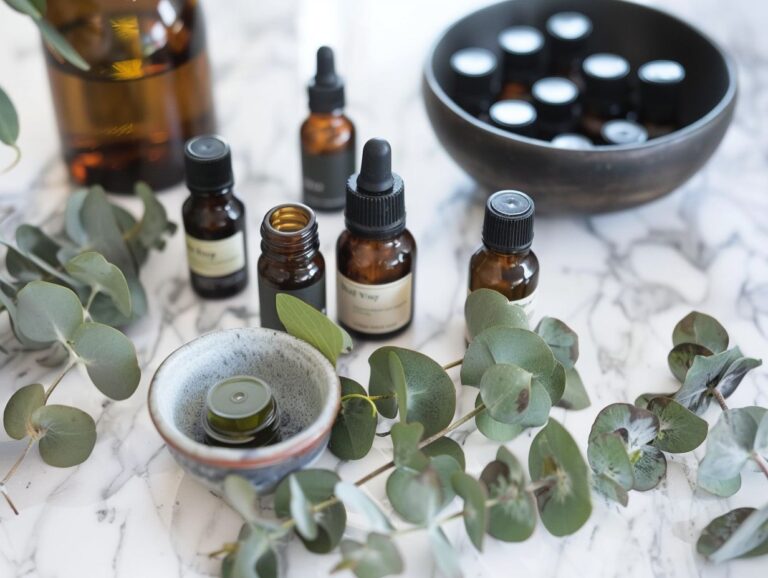
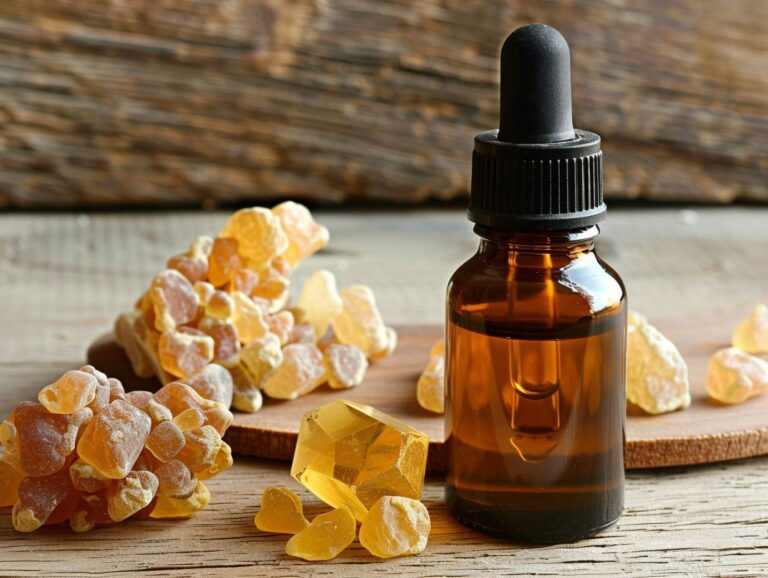
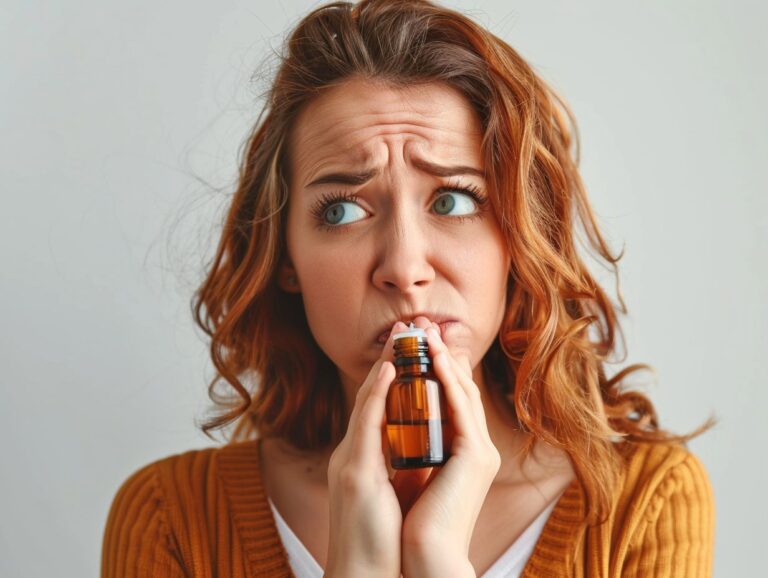
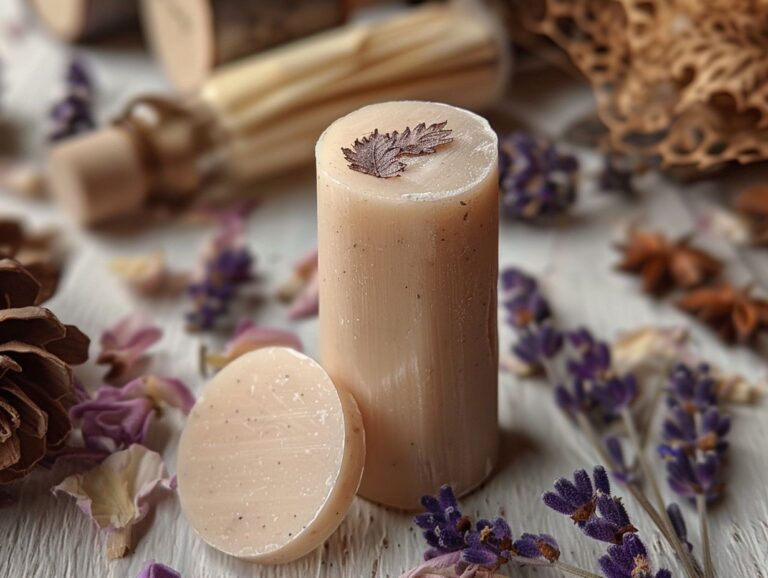
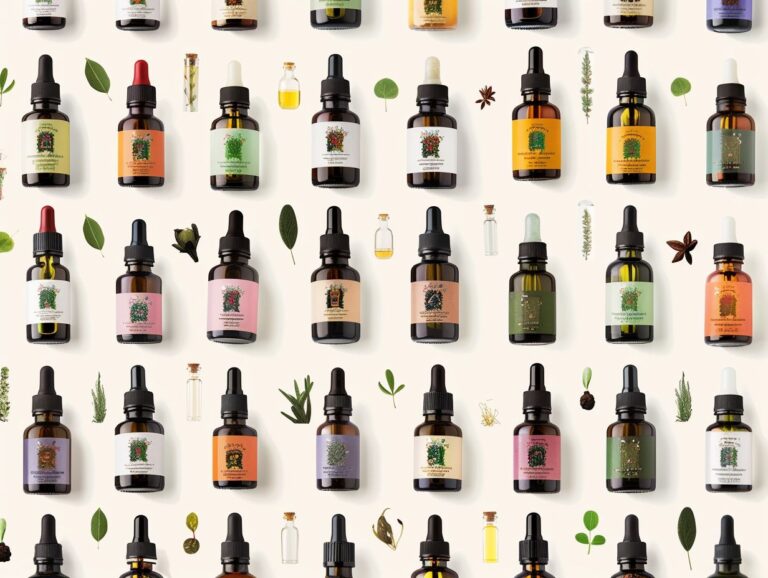
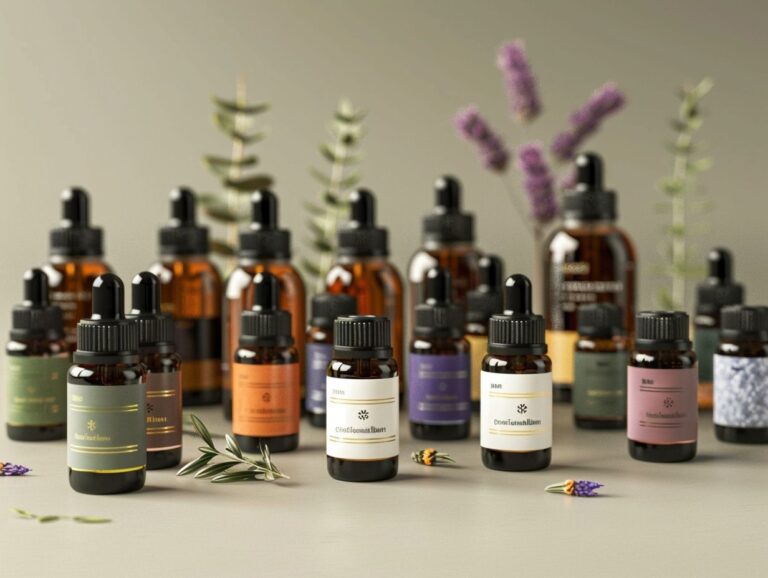
One Comment